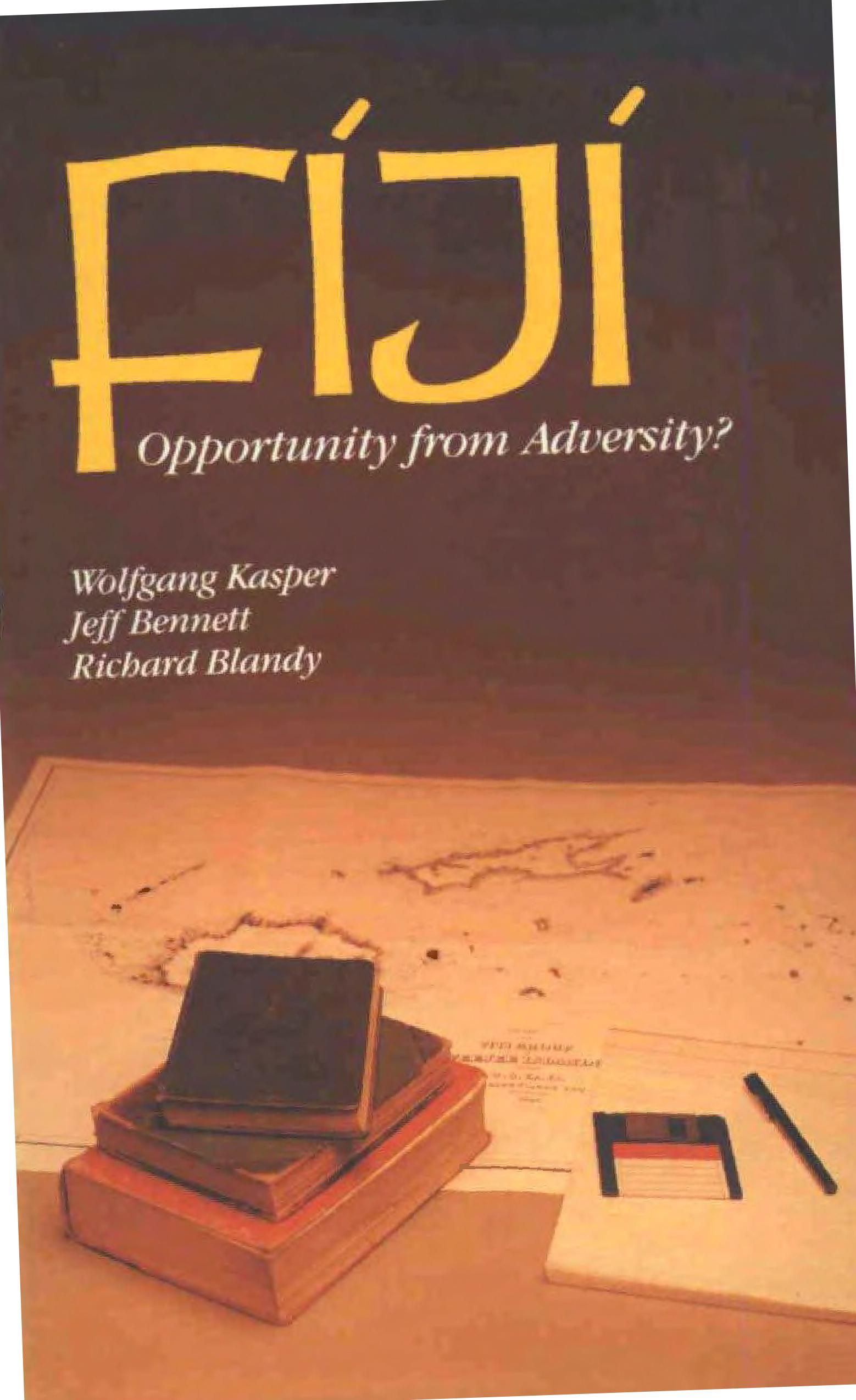

Many in Australia will share the concern of the authors or this monograph over current difficulties and prospects of our Pacific neighbour, Fiji. We have long had associations with it through trade, aid, education and tourism, and have also valued a connection through common membership of Pacific forums. This book offers an informative and perceptive analysis of the country’s serious economic problems together with bold proposals for radical changes which, its authors confidentally expect, would do much to improve both ecooomic growth and racial harmony.
For their analysis of current conditions they have made use of official stalistics but, because these are incomplete and lagging, have relied more upon many interviews with Fijian residents who are knowledgeable about various aspects of their own economy. The survey is a wide one, covering external trade, tourism, major industries, land and sea resources, labour, prices and wages, capital and foreign aid, public finance, public enterprises and state control, markets and entrepreneurship.
The monograph also brings out well the dualism of an economy in which Indians greally dominate the modem part, and Fijians monopolise the traditional part through long-standing rights to land, forests and fisheries.
Few, I think, will question the monograph’s peroeptive analysis of the current situation, or its exposure of a recent economic decline that has been much aggravated by the forcible seizure of political power to the detriment of the Indian half of Fiji’s population, many of whom have been moving themselves or their capital out of the country. Some who read this monograph may nevertheless have reservations about its proposals for reforms. These amount to wholesale and quick deregulation or all parts of the economy, including the markets for labour and
land, and privatisation — including even The University of the South Pacific — in the hope of creating a market economy in which both races will have equal opportunities of access to jobs and resources.









